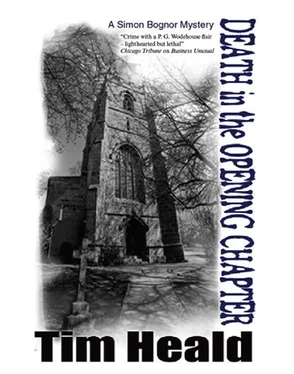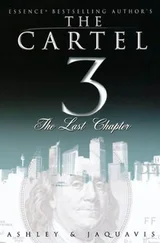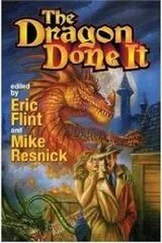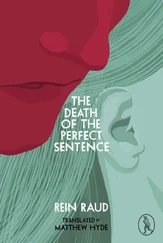Tim Heald - Death in the opening chapter
Здесь есть возможность читать онлайн «Tim Heald - Death in the opening chapter» весь текст электронной книги совершенно бесплатно (целиком полную версию без сокращений). В некоторых случаях можно слушать аудио, скачать через торрент в формате fb2 и присутствует краткое содержание. Жанр: Криминальный детектив, на английском языке. Описание произведения, (предисловие) а так же отзывы посетителей доступны на портале библиотеки ЛибКат.
- Название:Death in the opening chapter
- Автор:
- Жанр:
- Год:неизвестен
- ISBN:нет данных
- Рейтинг книги:5 / 5. Голосов: 1
-
Избранное:Добавить в избранное
- Отзывы:
-
Ваша оценка:
- 100
- 1
- 2
- 3
- 4
- 5
Death in the opening chapter: краткое содержание, описание и аннотация
Предлагаем к чтению аннотацию, описание, краткое содержание или предисловие (зависит от того, что написал сам автор книги «Death in the opening chapter»). Если вы не нашли необходимую информацию о книге — напишите в комментариях, мы постараемся отыскать её.
Death in the opening chapter — читать онлайн бесплатно полную книгу (весь текст) целиком
Ниже представлен текст книги, разбитый по страницам. Система сохранения места последней прочитанной страницы, позволяет с удобством читать онлайн бесплатно книгу «Death in the opening chapter», без необходимости каждый раз заново искать на чём Вы остановились. Поставьте закладку, и сможете в любой момент перейти на страницу, на которой закончили чтение.
Интервал:
Закладка:
Tim Heald
Death in the opening chapter
ONE
The Reverend Sebastian Fludd unlocked the door to his church, walked up the aisle, crossed himself, knelt briefly in prayer and then sat down in one of the front pews. Such was his wont as he began to think about tomorrow’s sermon. It was one of the most important of the year – less so than Christmas or Easter, but more significant than any other – for it heralded the annual Flanagan Fludd Literary Festival, which had been held for a decade in the pretty little seaside town of Mallborne.
The Reverend Sebastian was descended, vaguely, from the eponymous festival dedicatee and his presence as vicar of the small but perfectly formed thirteenth-century Saint Teath’s church owed something to this and to the presence in the decaying manor house of Sir Branwell Fludd, the fourteenth baronet, who, being the great grandson of the poet, pageant-contriver and pantomime-composer after whom the festival was named, was even more closely connected with the festival than his distant cousin, the rector. His living was, in effect, under Sir Branwell’s control. However, the bishop, something of a radical (though described by some as a closet conservative), was inclined to dispute this feudal relic.
Much of Mallborne was still under the control of Sir Branwell and Lady Fludd, for the town had, on the whole, resisted New Labour and such novel concepts as democracy and progress. The Fludd cousins and the rest of the community behaved as if nothing of any great significance had happened in Mallborne for the last thousand or so years. In this, they might have seemed unfashionable, but they were also, more or less, correct.
Sebastian opened his Bible and read, sotto voce, ‘In the beginning was the word.’
The Gospel according to St John, Chapter One, beginning at the first verse. Just the ticket for a literary festival. ‘And the word was God. And the word was with God.’ Strange that he had never used this text before. He believed that the King James Bible was one of the great works of English literature, that the words in it were beautiful and beautifully arranged. They were, in a very real sense, the words of God and this would be the theme of his talk from the pulpit this Sunday. God knows what the words meant but that was not unusual when it came to the Bible, or anything else. Perhaps that would be his theme: an exasperated shrug and spreading of the hands, together with a sighed, ‘God knows!’
Faith sat lightly on the shoulders of God’s servant Sebastian Fludd. In fact, it sat so lightly that its gossamer-like ethereality was often non-existent. He was more of a lugubrious agnostic than a cheerful atheist, but he could not, in all conscience, be described as a conventional believer. He had only taken orders because as the younger son of a younger son it had seemed the right, indeed the only, thing to do.
Truth to tell, he should have done almost anything else, and in a more up-to-date family he might have done so. The Fludd family, however, had been sending their problem children into the church since the Reformation and beyond. There were uncommitted Reverend Fludds littering the footnotes of English history virtually since English history first began. True, there had been the occasional committed firebrand Fludds, and one had even been burned at the stake for his convictions. On the whole, however, the ecclesiastical Fludds belonged to the Laodicean wing of the church, being neither hot nor cold, and worthy, therefore, of being spewed out by the likes of St Paul, who was made, it went without saying, of sterner stuff.
The Reverend Sebastian was feeling a bit spewed out, himself, that night as he contemplated the Gospel according to St John. Sir Branwell had given him a wigging; Mrs Fludd had done the same and there had been two anonymous letters which were unsettling. And he had had a run-in with the chef-proprietor of the pub – the cook with the funny foreign name. He felt beleaguered. It was no fun being a vicar these days, particularly if you had trouble believing in God, let alone the ludicrous beliefs that went with Him. The Reverend Sebastian had much sympathy with same-sex marriage and the ordination of women as bishops. These relatively progressive views did not find sympathy with either Lady Fludd nor Sir Branwell. Nor was he entirely sure of his Bishop, Ebenezer, nor indeed his wife, Dorcas. Luckily, the Reverend Sebastian did not hold his beliefs very strongly, not being given to strong beliefs about anything much. Which was, perhaps, part of his problem and why, in middle age, he was rector of St Teath’s, Mallborne, and likely to remain so for the foreseeable future.
He frowned over the words and concentrated on the Good Book so hard that he did not hear the click of the church door, which he had left unlocked, or the soft pad of footsteps up the aisle.
He enjoyed the literary festival, even though he was sceptical about his ancestor who struck him as a Victorian ranter and charlatan. He had a long white beard like an old-fashioned version of God the Father Almighty and his poetry quite definitely did not stand the test of time, being, in his opinion, ponderous, pompous and unduly orotund. The rhymes, which were frequent, were obvious, as were the sentiments. Never mind, the festival was fun and alliterative. He was sorry they were not having Salman Rushdie whose humour he much enjoyed. For some reason Lady Fludd, who was a sort of de facto literary director of the festival, did not find Rushdie funny, so he went uninvited, which the Reverend Sebastian thought rather a pity.
Some people thought Rushdie’s sense of humour about as funny as those old-fashioned ‘cartoons’ in which the United Kingdom is represented by a man in breeches with a Union Flag as his waistcoat and a bulldog at his feet. This was thought by some London bien savants to be genuinely droll, and as far as the Reverend Sebastian was concerned, Rushdie’s humour was at the cutting edge. He thought his mace was a rapier. In other words, the vicar had a rudmentary sense of humour. Or possibly none at all. He obviously wouldn’t recognize a joke until he had had it explained, by which time it would have lost any point it might once have had. In other words, Rushdie was funny. In this, he was probably in a minority. He also believed Rushdie to be functionally illiterate. His was not a popular view, except in Mallborne, where it was virtually unanimous. In any case, this view had nothing to do with being asked to participate in the local literary festival. Rather the reverse.
He sighed, something he seemed to do with increasing frequency these days. Life, he conceded, had turned out to be a bit of a flop as far as he was concerned. Still, he got hate mail. Not as much as Rushdie, and as far as he knew no fatwa had ever been issued on his behalf. Most of the hate mail was from gays and lesbians, which was a pity and not entirely fair, since the attitudes of which they accused him were not, strictly speaking, his own, but those of Sir Branwell who was, when it came to attitudes and much else besides, his lord and master. Attitudes: Anglo-Saxon. There had been a book with that title once. It was by Angus Wilson, an author whom he much admired, though he was now a forgotten taste and had died before he could be invited to the literary festival.
The Reverend Sebastian had a lot to do with the festival, quite apart from preaching the sermon at the service which always preceded it. He and Lady Fludd tended to choose the speakers, even though the conceit was that power resided with the council. The council was in this, as in most things, a nuisance, but Mallborne was essentially feudal and therefore the council’s writ did not really run. The Reverend and Lady Fludd called the shots without a great deal of opposition. Smallwood from the council did most of the work; Sir Branwell and Dorcas, wife of the reverend, heckled half-heartedly, except in the rare instances, such as that of Salman Rushdie, when they had what might reasonably be described as a point of view. But, basically, the Rev. and Her Ladyship did as they wished.
Читать дальшеИнтервал:
Закладка:
Похожие книги на «Death in the opening chapter»
Представляем Вашему вниманию похожие книги на «Death in the opening chapter» списком для выбора. Мы отобрали схожую по названию и смыслу литературу в надежде предоставить читателям больше вариантов отыскать новые, интересные, ещё непрочитанные произведения.
Обсуждение, отзывы о книге «Death in the opening chapter» и просто собственные мнения читателей. Оставьте ваши комментарии, напишите, что Вы думаете о произведении, его смысле или главных героях. Укажите что конкретно понравилось, а что нет, и почему Вы так считаете.












